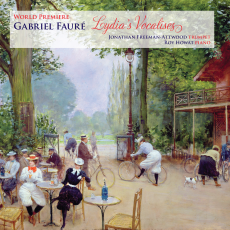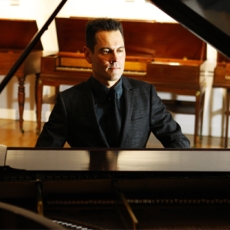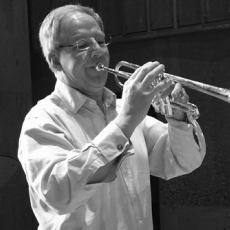Jonathan Freeman-Attwood - Faure - Fanfare
In Jean-Michel Nectoux's Gabriel Fauré: a musical life (Cambridge: Cambridge University Press, 1991), two paragraphs are given to the Vocalise-Étude, composed for Conservatoire sight-singing examinations in 1906, occasionally resurrected as filler in instrumental programs and beloved of all fauréennes. "The fact that the piece, for voice without words and a piano, is of primarily pedagogical intent has led to its neglect-which is a pity, as its calm, transparent logic makes it one of Fauré's finest compositions....This unusual piece is, moreover, only a tiny part of a fairly substantial collection of sight-reading pieces for voice and piano which Fauré provided, almost throughout his period as director, for the Conservatoire singing classes. The rest have remained unpublished." No longer. Musicologists Roy Howat and Emily Kirkpatrick edited those forgotten manuscripts for publication in 2013 as part of the Peters Critical Edition of Fauré's complete songs. Given their purpose, most are very brief, playing less than a minute. At 2:23, No. 28 is the longest, though their piquancy, impact, and magic belie their minuscule dimensions. Evident in every one is Fauré's flair for arresting melody, which leaves one with the major disappointment that such rich material was tossed off without development. Composed between 1906 and 1916, they are contemporary with La Chanson d'Ève (1906/10) and the opera Pénélope (1913) - that is, Fauré's most hermetic utterance and his most engagingly public scintillations, from both of which these flicker brightly throughout. For this first recording, titled Lydia's Vocalises, Howat has gathered the vocalises, out of sequence, into six albums - La Beauté, L'Envie, La Cour, La Tendresse, Les Regrets, Les Souvenirs - framed by an initial account of Lydia in F, to conclude with another reading in G. While the program is unnecessary, it adds a soupçon of elegance, undercut somewhat by the composer's birth date given as 1854-Fauré was, of course, born in 1845.
As the booklet notes, the remainder of the program, or bonus tracks-Chabrier, Saint-Saëns, Rameau, et al. - are drawn from other Linn releases featuring Freeman-Attwood accompanied by Daniel-Ben Pienaar. And there's the rub. The trumpeter is never less than adept, Howat and Pienaar are hand-in-glove, while the disc is a relentless exposition of high artistry. A trumpet, however, is not the first instrument one might have chosen for this fare, if only because its strident timbre proves wearing well before the vocalises have been run through. Even in the recording's open spaciousness, the trumpet is overbearing. Nonetheless, one is grateful that these revelatory riches are at last within hearing. It remains for vocalists to take them on. Meanwhile, no genuine Fauré maven will want to be without this album.



